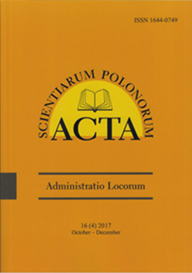WATER RESOURCES MANAGEMENT SCENARIOS
AND TRANSBOUNDARY HYDRO-POLITICAL CONCERNS IN IRAN’S
EASTERN BORDER AREAS
WATER RESOURCES MANAGEMENT SCENARIOS
AND TRANSBOUNDARY HYDRO-POLITICAL CONCERNS IN IRAN’S
EASTERN BORDER AREAS
Author(s): Afshin Mottaghi, Kamran Jafarpour Ghalehteimouri, Mosayeb Ghareh-BeygiSubject(s): Energy and Environmental Studies, Environmental and Energy policy
Published by: Wydawnictwo Uniwersytetu Warmińsko-Mazurskiego w Olsztynie
Keywords: water resources; positive mathematical programming; economic scenarios; crop price; hydrology; reduction in productivity;
Summary/Abstract: Motives: Since the main sources of some rivers are located in neighbouring countries, hydrologicalissues in the eastern part of Iran are critical. The water dispute between Iran and the neighbouringAfghanistan is related to environmental issues and human health.Aim: The aim of this study was to demonstrate how transboundary water conflicts increase humanvulnerability through economic issues such as reduced productivity in the agricultural sector.Results: The study’s originality lies in the application of the positive mathematical programmingapproach to the agricultural sector, specifically in evaluating the impact of water pricing policies oncrop selection and irrigation water use. A quadratic cost function was calibrated to develop threescenarios of water resources consumption (30%, 40%, and 70% reduction for farmers in group 1,and 10%, 25%, and 75% reduction for farmers in group 2) and price increase (70%, 80%, and 100%increase). The calibration of the quadratic cost function revealed an increase in irrigation efficiency(water resources consumption) as well as an increase in the region’s irrigated area.
Journal: Acta Scientiarum Polonorum Administratio Locorum
- Issue Year: 22/2023
- Issue No: 3
- Page Range: 359-372
- Page Count: 14
- Language: English

